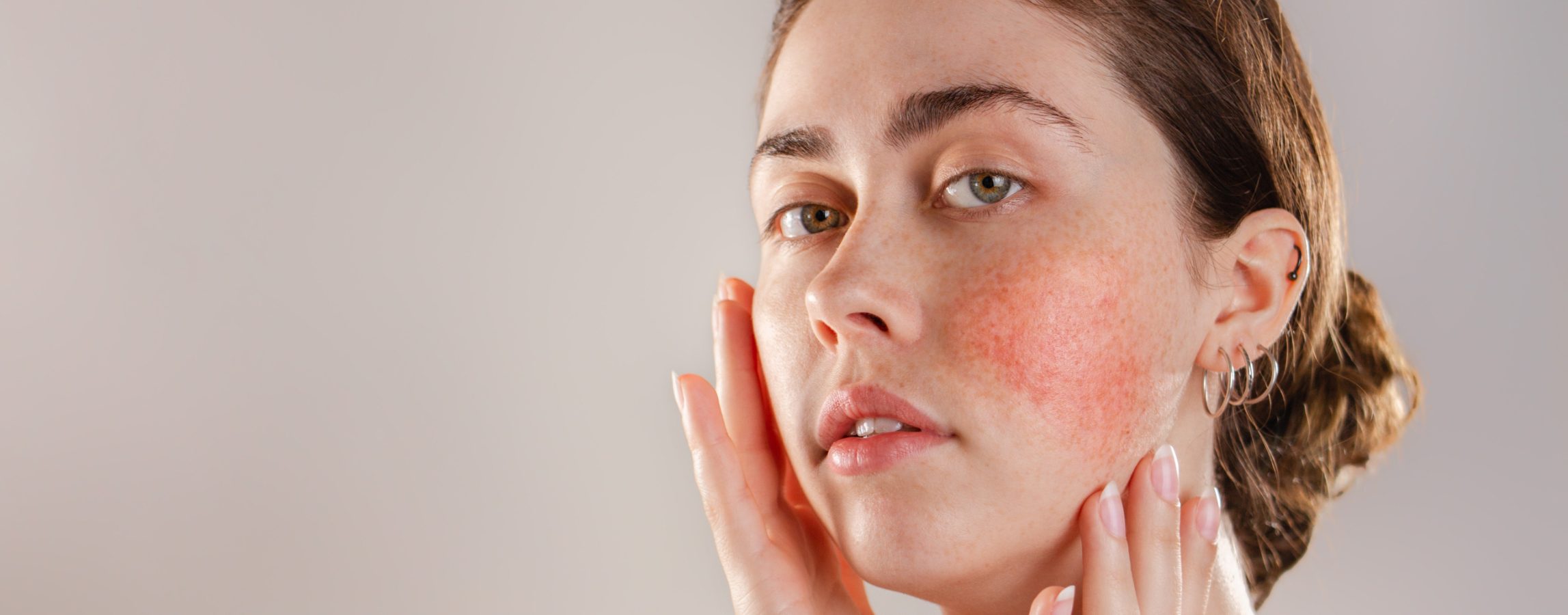Rosacea generally begins after age 30 and goes through cycles of flare-ups and remissions. Over time, it gets ruddier in color and small blood vessels (like spider veins) may appear on the face. If left untreated, bumps and pimples may form, the end of the nose may become swollen, red, and bulbous and the eyes may water or become irritated. If these symptoms sound familiar, we welcome you to schedule an appointment with Dr. Brezel at our Queens, NY center.
What Is Rosacea?
Rosacea is a chronic skin condition that causes facial redness, acne-like pimples, visible small blood vessels on the face, as well as swelling and/or watery, irritated eyes. This inflammation of the face can affect the cheeks, nose, chin, forehead, or eyelids. More than 14 million Americans suffer from this condition. It is not contagious, but there is some evidence to suggest that it is inherited. There is no known cause or cure for rosacea. There is also no link between this condition and cancer.
What Are Some Common Symptoms?
Common symptoms of this issue include:
- Flushing.
- Persistently red skin on the face.
- Bumps or acne-like pimples.
- Visible blood vessels on facial skin.
- Watery or irritated eyes.
- Burning, itching or stinging of facial skin.
- Skin roughness and dryness.
- Raised red patches.
- Swelling (edema).
These symptoms may also appear on the neck, chest, scalp, and ears.
What Are the Causes of Rosacea?
Rosacea occurs most often among people with fair skin who tend to blush or flush easily. It occurs more often among women than men, but men tend to suffer from more severe symptoms. Most patients experience multiple symptoms at varying levels of severity. Certain foods or environmental factors activate outbreaks of this condition. These causes are known as triggers. Research conducted by the National Rosacea Foundation found that the leading triggers for rosacea are:
- Sun exposure
- Hot or cold weather
- Emotional stress
- Wind
- Alcohol
- Heavy exercise
- Spicy foods
- Hot baths
- Heated beverages
- Some skin care products
- Humidity
- Indoor heat
Rosacea Treatment
There is no cure for this condition and each case is unique, which is why it is important to come in for a complete skin consultation. Dr. Brezel may prescribe oral antibiotics and topical medications to reduce the severity of the symptoms. We will also attempt to identify triggers for rosacea you should avoid. When the condition goes into remission, only topical treatments may be needed. We may also recommend laser treatments to remove any visible blood vessels and reduce excess redness and bumpiness on the nose. We have had great success in improving skin tone and texture for a variety of conditions with our state-of-the-art laser technology.
Get Treatment for Your Rosacea Skin in Queens, NY
While rosacea cannot be cured, we can dramatically curtail its effects on your skin. For a full skin consultation for rosacea, just fill out the following form and submit it to schedule your appointment.

